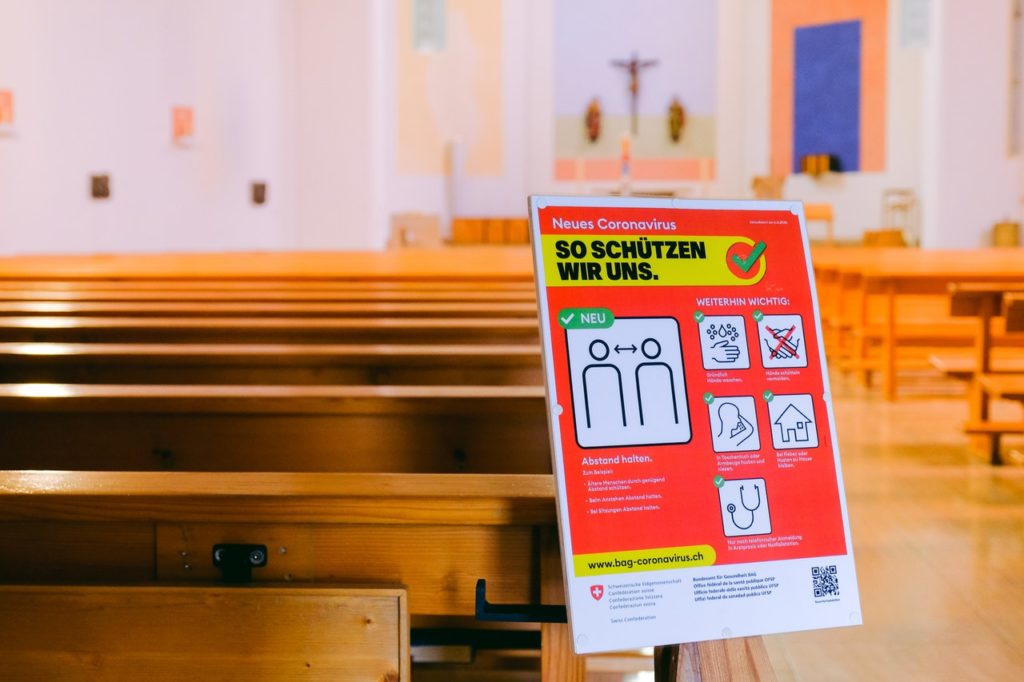
By @johnvinod | February 24, 2021
We have been reflecting on the book of the prophet Joel for the past one week. Today, I want you to read the second chapter again and then focus on 2:18: “Then the Lord became jealous for his land and had pity on his people” (NRSV/ESV). This is a turning point in this prophecy. From the chapter first through chapter two and verse 11, Joel detailed the terrifying locust plagues and the judgement of the Lord. We are to assume here that the prophet’s call to penitence in 2: 12-17 was obeyed and people indeed returned to the Lord. We are also to assume a time-lag between these verses and verse 18. Therefore, now the prophet moves from talking about judgement to the restoration of Israel with verse 18 clearly marking that transition.
Verse 18 presents to us how a compassionate God responds to people with salvation when they truly repent and return to Him. He is eager to act with zeal to restoring both “his land” and “his people”! However, some translations show this verse as a promise with the future tense— “Lord will be jealous” (e.g. NASB/KJV). I believe, the past tense “Then the Lord became/was jealous” is a better rendering because the prophet describes a favorable action of the Lord in Joel’s time as God’s response to people who sincerely engaged in the penitence enjoined in 2: 12-17. This also fits well in Joel’s purpose of showing the actual purpose of the plague—not to destroy but to restore God’s people.
However, in verse 18, what does Joel mean when he says that God became “jealous”?
This term has been used several times in the Bible as an expression of God’s envy, zeal, passion, or ardent concern for his covenant people.
“because the Lord, whose name is Jealous, is a jealous God” (Exodus 34:14 NRSV).
I am the Lord, that is my name; my glory I give to no other, nor my praise to idols. (Isaiah 42:8 NRSV).
It has both positive and negative connotations—God is excited and worked up to defend his people when they are reviled, and he gets agitated with great wrath when they indulge in idol worship forsaking his uniqueness. God will not share his glory with another person or thing. As their Creator and covenant God, He loves and cares for his people so much that he grows envious when they go after false gods or engage in rebellious behaviour. Jealousy of God represents that He is always faithful to his covenant and will be agitated to lash out if our actions tend to undermine the covenant and compromise with his uniqueness in entertaining anyone else other than Him.
In Joel 2: 18, God was not only jealous but also had pity or compassion on his people, which stems from his being passionately concerned.
In the New Covenant, the church is described as the bride of Christ, which aptly explains why God is envious/jealous when the church would show even a semblance of unfaithfulness to the Bridegroom.
I feel a divine jealousy for you, for I promised you in marriage to one husband, to present you as a chaste virgin to Christ (2 Corinthians 11: 2 NRSV).
When we human bridegrooms are not ready to tolerate any unfaithfulness and will do anything to protect our brides and partners, how much more will God be passionate about keeping loyalty in our relationship with Him! Therefore, jealousy is an attribute of our God who has a passionate concern and deep love and compassion for us, His chosen people. The current pandemic has exposed areas in church where we have not been faithful to him. We have callously erected our own golden calves in the form of political ideologies/parties/politicians. We are guilty of engaging in cultish behaviour with regard to the Christian leaders/speakers/pastors. Often, our reasons for gathering are determined by the popularity of the celebrity pastor/speaker rather than the Word or worship! We do not come so that the eternal Word would minister to us rather to listen to modish “great” presenters who can entertain us with their skills, oratory, or a flowery style of public speaking. We are found guilty of placing personalities and heroes or defenders of our faith on a pedestal where only God belongs. This Lenten season, may we sincerely heed to Joel’s call to repentance. And if we did, our gracious God will be jealous for our land and pity us in order to restore and save us. Amen!









